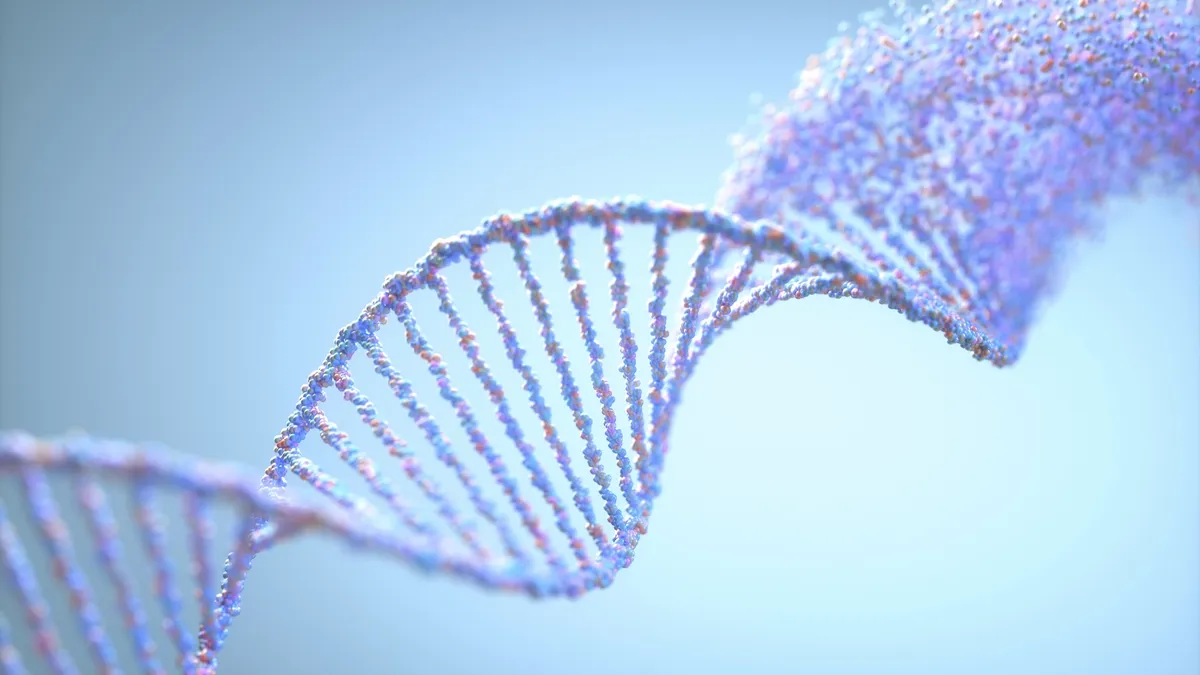
Recent research presented at the 41st Annual Meeting of the European Society of Human Reproduction and Embryology in Paris has brought scientists closer to understanding why polycystic ovary syndrome (PCOS) often runs in families. The study suggests that disruptions in gene regulation, known as epigenetic changes, could play a crucial role in increasing the likelihood of developing PCOS. These changes can modify gene activity without altering the DNA sequence itself, and importantly, they may be inherited through generations.
This groundbreaking research opens up potential avenues for the prevention of PCOS. For instance, during procedures like in vitro fertilization (IVF), it's conceivable that harmful epigenetic markers could be identified in embryos and modified before implantation. This could potentially prevent the transmission of PCOS to future generations, as explained by Dr. Sherry Ross, a board-certified OB/GYN at Providence Saint John's Health Center in Santa Monica, California. However, Dr. Ross cautioned that further studies are needed on human embryos to determine the safety and feasibility of such interventions.
Polycystic ovary syndrome is a hormonal disorder affecting between 6% to 13% of women of reproductive age, according to the World Health Organization (WHO). Alarmingly, up to 70% of cases remain undiagnosed globally. Common symptoms of PCOS include ovarian cysts, weight gain, thinning hair, excess facial or body hair, acne, infertility, and irregular or heavy menstrual periods. The WHO also highlights that individuals with PCOS have a higher risk of developing other serious health conditions, such as high blood pressure, type 2 diabetes, and endometrial cancer.
Dr. Sydney Chang, founding partner and medical director of CCRM Fertility of Austin, emphasizes the significant genetic component associated with PCOS. Research, such as the Dutch Twin-Family Study, compared identical twins, who share nearly 100% of their DNA, to fraternal twins, who share about 50%. The findings revealed that the likelihood of both twins having PCOS was significantly higher among identical twins, indicating a strong hereditary link. It is estimated that between 20% to 40% of individuals with PCOS have a mother or sister with the same condition, although precise inheritance patterns remain unclear.
The recent study, led by Dr. Qianshu Zhu from the Institute of Reproductive Medicine at Chongqing Medical University in China, involved approximately 230 women undergoing IVF, of whom 133 had PCOS and 95 did not. The researchers examined unfertilized egg cells and pre-implantation embryos to identify epigenetic markers that influence gene activity. Compared to the eggs and embryos from women without PCOS, those from women with the condition exhibited significant disruptions in several important genes related to metabolic processes and the activation of early embryo DNA.
Moreover, the study revealed irregular patterns in critical epigenetic markers, such as H3K27me3, which are essential for gene regulation. Dr. Zhu noted that about half of the abnormal H3K27me3 patterns observed in Day 3 embryos were already present in the egg cells, suggesting that epigenetic signals are transmitted from mother to embryo before implantation. Understanding these mechanisms could lead to innovative preventative strategies for PCOS.
The researchers propose that embryos created through IVF could be treated to modify their epigenetics, potentially reducing the risk of inheriting PCOS. These findings could also enhance embryo selection processes during IVF. However, Dr. Zhu stressed that the current research is based solely on lab-created embryos and does not confirm the effects of these epigenetic markers on children. His team plans to conduct further studies using mouse models to gain deeper insights into the implications for offspring.
This new research provides compelling evidence of a genetic association between PCOS and family history, illuminating pathways for early diagnosis and intervention strategies to prevent the transmission of PCOS across generations.